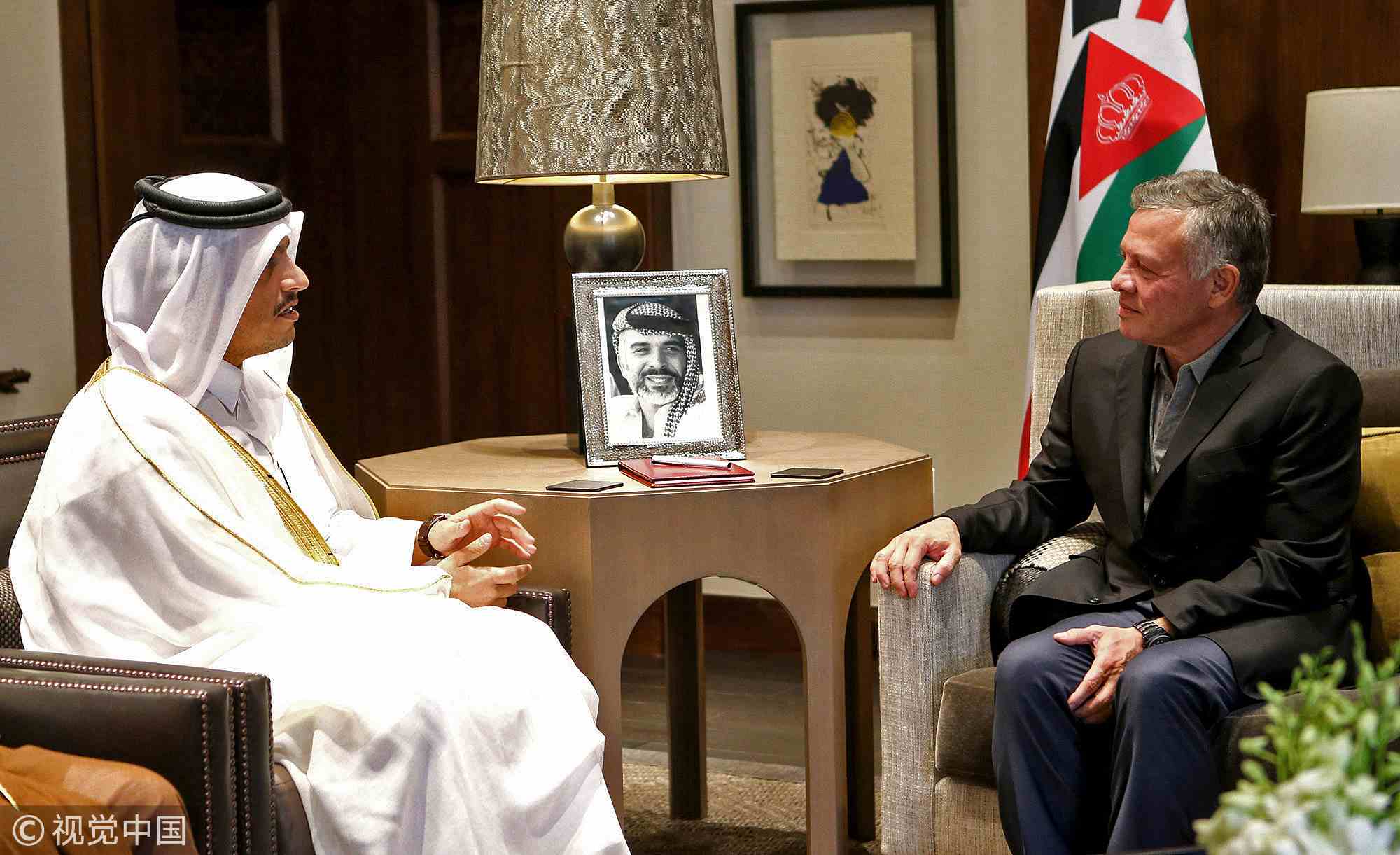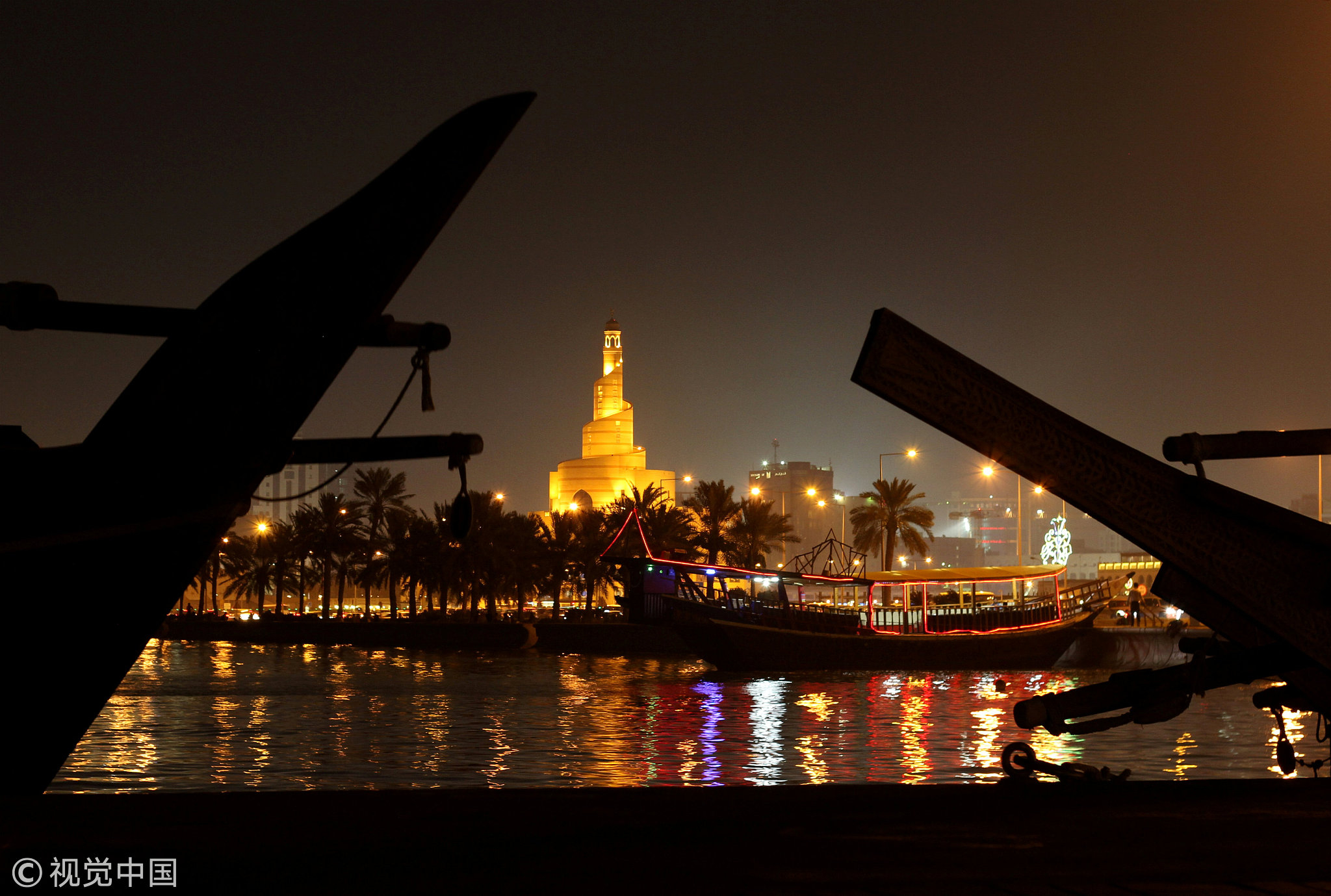
Opinions
19:12, 14-Jun-2018
Opinion: Qatar-Saudi Arabia rift may last longer
By Wang Jin

Editor's note: Wang Jin is a research fellow with the Charhar Institute of the Northwest University, China. The article reflects the author's opinions, and not necessarily the views of CGTN.
It has been one year since the bitter Qatar-Gulf Cooperation Council (GCC) rift, but the situation has yet to show any sign of improving. After blockades and sanctions for one year, Qatar has successfully managed to overcome a raft of negative economic and security impacts. However, the country's division with other GCC states might continue into another year.
Qatar’s influence in the Middle East could be largely attributed to its economic power, and its foreign policy could be attributed to its special history and political principle. The rise of Qatar resulted from the former emir Hamad bin Khalifa Al Thani’s ambitious and comprehensive reforms in the mid-2000s.
When King of Bahrain Hamad bin Isa Al-Khalifa and Syrian President Bashar Assad disappointed many with their short-lived and ultimately unsuccessful economic opening-up and political reforms and when the kings of Jordan and Morocco showed unwillingness to take measures that would lead to a more inclusive political structure, Emir Hamad’s political and economic success won favorable plaudits.
Prior to the discovery of oil in Qatar in the 1930s, Qatar was dominated by the pearl industry. Qatar’s oil economy started in 1935, when the country agreed to transfer the rights of producing, transporting, refining and marketing oil and gas to an associate company of the Iraq Petroleum Company named Petroleum Development (Qatar) Ltd. The company was a subsidiary of the Anglo-Persian Oil Company.

Jordanian King Abdullah II (R) receives Qatar’s Deputy Prime Minister and Foreign Minister Sheikh Mohammed bin Abdulrahman Al Thani in the capital Amman, June 13, 2018. /VCG Photo
Jordanian King Abdullah II (R) receives Qatar’s Deputy Prime Minister and Foreign Minister Sheikh Mohammed bin Abdulrahman Al Thani in the capital Amman, June 13, 2018. /VCG Photo
Oil production and sudden inflow of revenues transformed the economic and social conditions in Qatar, making it a small state with huge economic and political potential.
With its political independence and the failure of proposed union with Bahrain and the United Arab Emirates in the early 1970s, Qatar was in a highly dangerous situation. The period of greatest uncertainty lasted from the UK’s military withdrawal on November 30, 1971 until US President Jimmy Carter’s proclamation of the Carter Doctrine on January 23, 1980.
In response to the rising threat from Iran after Ayatollah Khomeini’s revolution in 1979, Qatar joined the other five Gulf Arab states to establish the GCC in May of 1981.
The GCC is neither a political nor a military alliance, and it lacks an integrative supra-national decision-making institution for the sharing of sovereignty, akin to the European Commission. GCC’s member states retained their own independence, and small GCC states, such as Kuwait and Qatar, strongly resisted any putative limitations on their sovereignty. After Hamad deposed his father, Khalifa bin Hamad Al Thani in 1995 and assumed power in 2005, other GCC states did not recognize his legitimacy.

A mosque is seen along a coastline in Doha, Qatar, June 15, 2017. /VCG Photo
A mosque is seen along a coastline in Doha, Qatar, June 15, 2017. /VCG Photo
Bahrain boycotted the GCC summit held in Doha of Qatar in 1996. And alleged Saudi-supported military coup attempts were crushed in 1996 and 2005. Even after the new Emir Tamim bin Hamad Al Thani assumed power in 2013, Qatar was still criticized by other GCC and Arab states.
As a small state, the desire for regional autonomy and international peace and stability is deeply rooted in Qatar’s foreign policy. As a successful city-state in the Gulf region, Qatar is an example of an export-centric economy and attracts foreign investment and tourists from across the world. With the Aljazeera satellite television, Qatar is able to exert influence across the Arab world.
Qatar has placed itself as one of the major mediators in various important conflicts and crises all across the Middle East, such as the Israel-Hamas war in 2012 and the Lebanon civil war in 2008. Qatar’s active involvement in the Middle East makes it a major actor with a positive reputation in the Arab and Islamic world.
Although one year has passed since the rift between Qatar and other GCC states went public last June, the division might continue for another year, or even longer.
(Cover Photo: June 23, 2017: A view of the Qatari side of the Abu Samrah border crossing with Saudi Arabia. /VCG Photo)

SITEMAP
Copyright © 2018 CGTN. Beijing ICP prepared NO.16065310-3
Copyright © 2018 CGTN. Beijing ICP prepared NO.16065310-3